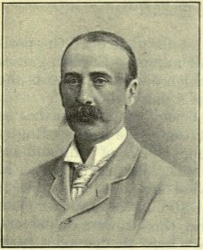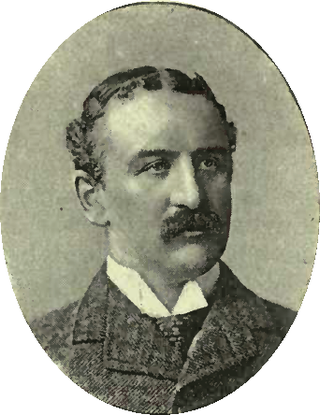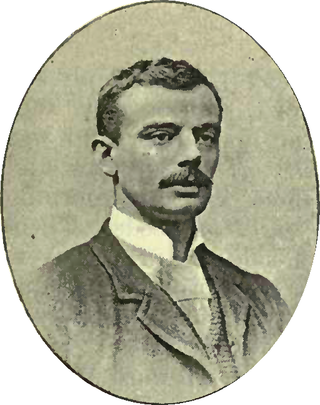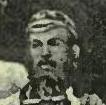
George Louis Palmella Busson du Maurier was a Franco-British cartoonist and writer known for work in Punch and a Gothic novel Trilby, featuring the character Svengali. His son was the actor Sir Gerald du Maurier. The writers Angela du Maurier and Dame Daphne du Maurier and the artist Jeanne du Maurier were all granddaughters of George. He was also father of Sylvia Llewelyn Davies and grandfather of the five boys who inspired J. M. Barrie's Peter Pan.

Wartling is a village and civil parish in the Wealden District of East Sussex, England, between Bexhill and Hailsham, ten miles (16 km) west of the latter at the northern edge of the Pevensey Levels. The parish includes Wartling itself and Boreham Street, two miles (3 km) north-east on the A271 road.
Deborah Alcock was a late-Victorian author of historical fiction focused on religious, evangelical themes.
Reginald Halsey Birkett was an English footballer who played for Clapham Rovers, as well as the English national side. He also played international rugby union for England in 1871, in the first international rugby match. In this match he scored England's first try.
Edward O'Donovan Crean was an English rugby union player who was part of the first official British & Irish Lions team that toured South Africa in 1910. He is one of a small number of Lions players to have never played for their national side.

Frederick Stokes was the first captain of the England national rugby union team, who played for and captained the team in the first three rugby internationals, all between England and Scotland. He was also the youngest president of the Rugby Football Union.

Dr. Lennard Stokes was a rugby union international who represented England from 1875 to 1881. He also captained his country on five occasions, notably in the first ever match against Wales. Like his brother Frederick Stokes, after captaining his country he went on to become the president of the Rugby Football Union.

Francis Luscombe was a rugby union international who represented England from 1872 to 1876. He also captained his country.

Murray Marshall was a rugby union international who represented England from 1873 to 1878. He also captained his country.

Fernand "Fred" Bonsor was a rugby union international who represented England from 1886 to 1889, he also captained his country. At club level he played for Bradford FC, and Skipton RFC.

Sir John Henry Luscombe was a highly successful insurance broker, becoming chairman of Lloyd's Register and being knighted for his services to underwriting. He had earlier been a rugby union international who represented England in the first international match in 1871, and was the brother of another rugby international, Francis Luscombe.

Dawson Turner was a rugby union international who represented England from 1871 to 1875.
Ramsay Weston Phipps was an Irish-born military historian and officer in Queen Victoria's Royal Artillery. The son of Pownoll Phipps, an officer of the British East India Company's army, he was descended from the early settlers of the West Indies; many generations had served in the British, and the English military. Phipps served in the Crimean War, had a stint of duty at Malta, and helped to repress the Fenian uprising in Canada in 1866.
Francis Loraine Petre was a British civil servant in India and a military historian upon his retirement. He wrote a two-volume regimental history of the Norfolk Regiment, but is best known for his works on the Napoleonic Wars. The grandson of the 11th Baron Petre, he was educated at Oscott College and joined the Bar in 1880. He took the civil service exam and subsequently joined the Indian Civil Service. He retired as Commissioner of Allahabad in 1900.

Henry Vassall was an English rugby union player, writer, and master of Repton School, Derbyshire. He was best known as a centre for Oxford University. Vassall played international rugby for England in the early years of the sport, winning five caps and scoring a hat-trick of tries in the first encounter between England and Wales.
Percival Wilkinson was a rugby union international who represented England in 1872 against Scotland in his only appearance for the national side.
Edward Forbes Walker was a rugby union international who represented Great Britain on the 1903 tour to South Africa. He represented Great Britain twice but never won a cap for his national side, England.
Andrew Bulteel (1850–1888) was a rugby union international who represented England in 1875.
John Edmund Bentley was an English sportsman who played in the first international rugby football match in 1871, representing England as a halfback.
Emilia Marryat was an author of English children's books. The third daughter of the author Captain Frederick Marryat and his wife, Catherine, she followed her father's example by infusing her adventure novels with moral lessons. Occasionally, she published under her married name, Emilia Marryat Norris.










